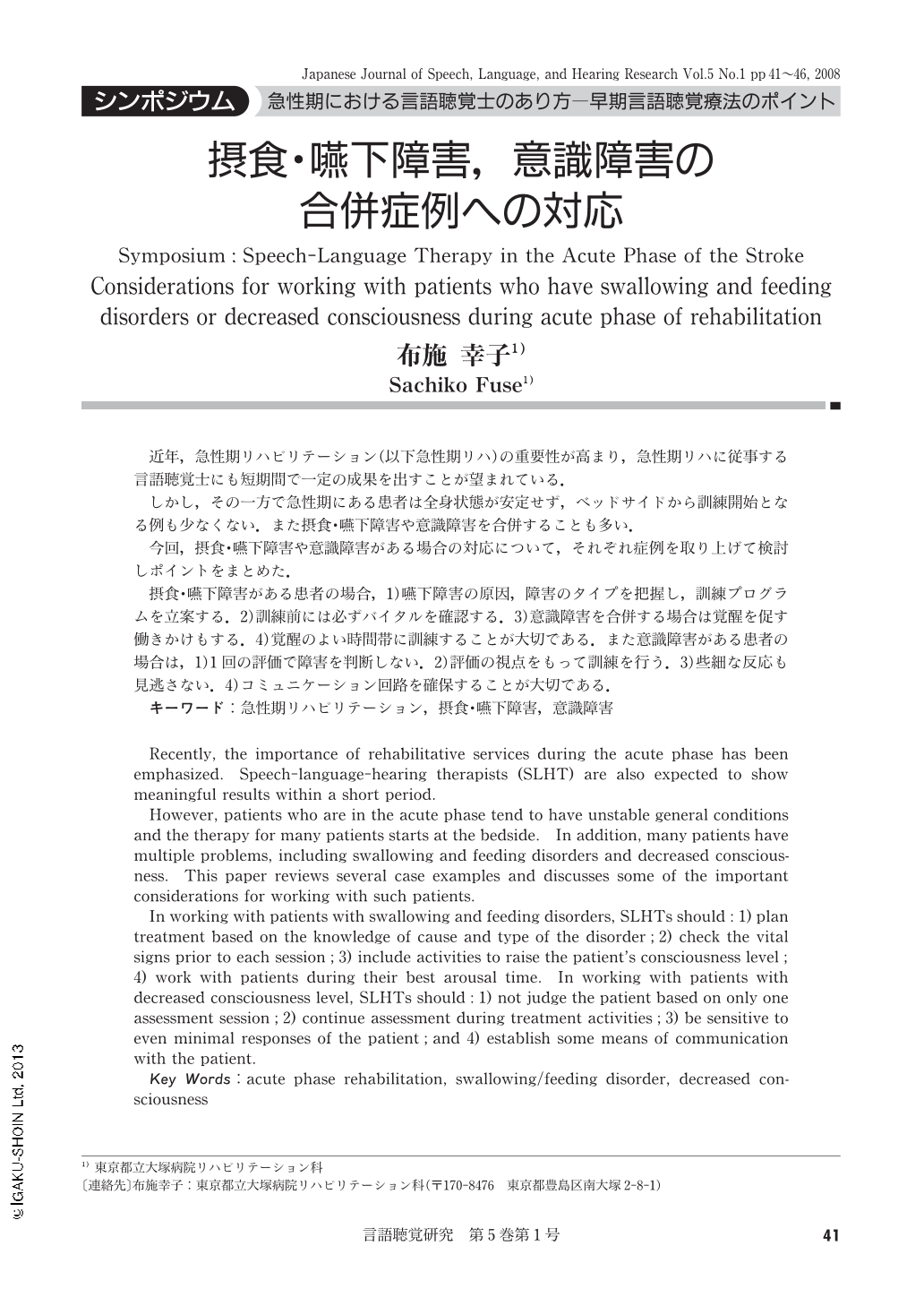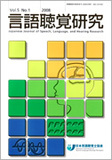Japanese
English
- 有料閲覧
- Abstract 文献概要
- 1ページ目 Look Inside
- 参考文献 Reference
- サイト内被引用 Cited by
近年,急性期リハビリテーション(以下急性期リハ)の重要性が高まり,急性期リハに従事する言語聴覚士にも短期間で一定の成果を出すことが望まれている.
しかし,その一方で急性期にある患者は全身状態が安定せず,ベッドサイドから訓練開始となる例も少なくない.また摂食・嚥下障害や意識障害を合併することも多い.
今回,摂食・嚥下障害や意識障害がある場合の対応について,それぞれ症例を取り上げて検討しポイントをまとめた.
摂食・嚥下障害がある患者の場合,1)嚥下障害の原因,障害のタイプを把握し,訓練プログラムを立案する.2)訓練前には必ずバイタルを確認する.3)意識障害を合併する場合は覚醒を促す働きかけもする.4)覚醒のよい時間帯に訓練することが大切である.また意識障害がある患者の場合は,1)1回の評価で障害を判断しない.2)評価の視点をもって訓練を行う.3)些細な反応も見逃さない.4)コミュニケーション回路を確保することが大切である.
Recently, the importance of rehabilitative services during the acute phase has been emphasized. Speech-language-hearing therapists (SLHT) are also expected to show meaningful results within a short period.
However, patients who are in the acute phase tend to have unstable general conditions and the therapy for many patients starts at the bedside. In addition, many patients have multiple problems, including swallowing and feeding disorders and decreased consciousness. This paper reviews several case examples and discusses some of the important considerations for working with such patients.
In working with patients with swallowing and feeding disorders, SLHTs should:1) plan treatment based on the knowledge of cause and type of the disorder;2) check the vital signs prior to each session;3) include activities to raise the patient's consciousness level;4) work with patients during their best arousal time. In working with patients with decreased consciousness level, SLHTs should:1) not judge the patient based on only one assessment session;2) continue assessment during treatment activities;3) be sensitive to even minimal responses of the patient;and 4) establish some means of communication with the patient.

Copyright © 2008, Japanese Association of Speech-Language-Hearing Therapists. All rights reserved.


